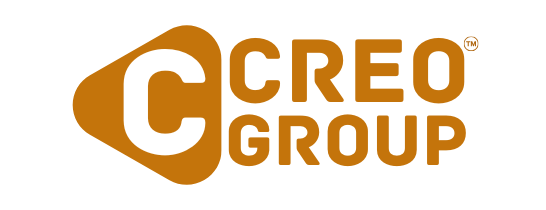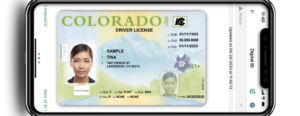[ad_1]
Coming up with a great product idea will occasionally strike when you least expect it. Many times though, it’s something you need to be on the lookout for.
That’s because approximately 95% of new products fail.
The web contains a wealth of ideas and inspiration, but as an entrepreneur, where do you begin? If you prefer to not aimlessly search online, you can try this list of resources as a jumping off point.

Free Webinar:
How to Find and Source a Winning Product to Sell
In less than 40 minutes, let us walk you through how to find product ideas, how to validate them, and how to sell the product once you have an idea you want to pursue.
Considerations for brainstorming product ideas
As you go through all the resources listed in this post, it’s vital to keep two things in mind:
While searching for new product ideas, make sure to look beyond the products themselves. It may sound cliche, but there is heavy competition in the most common and popular product categories.
Choosing a different or unique angle can be instrumental to your success. Try not to just look at products—rather, look for potential in the product category. Consider new markets, new features, and new ways to use the products.
Get your free Big List of Business Ideas
Looking to start a business but unsure what to sell? Check out our free Big List of Business Ideas with 100+ trending products.
Don’t be afraid to look at smaller product categories and niches. Even though a niche is a smaller subset of a larger category with less potential customers, it makes up for that by way of less competitors and a more targeted audience. Less competition makes it easier to get to the top of Google, and it can be more cost effective and efficient to advertise to your customers.
In this post, we’ll go into detail about the best places to look for high quality product opportunities and ideas, whether it’s for a line extension or a brand new store. We’ll start with some broad ideas to get your head in the right space to start your search, and then get into more specific resources closer to the end of the post.
16 places to find product ideas
- Start with what you have
- Pay attention to trends in your local community
- Consult online consumer trend publications
- Get inspired by industry leaders
- Use product trend discovery sites
- Peruse B2B wholesale marketplaces
- Browse online consumer marketplaces
- Look through social forum communities
- Search social media networks
- Read on-site and third-party customer reviews
- Review SEO analytics and insights
- Read consumer lifestyle publications
- Learn from your competitors
- Create customer surveys
- Crowdsource
- Look to the past
As you go through this post and the list of resources, it’s best to capture all of your ideas on paper. Once you have all of your brainstormed ideas recorded, you will be able to return to them later and evaluate them for viability and potential.
1. Start with what you have
Before you begin searching the depths of the web for small business ideas, products, and niches, it’s always best to start with the ideas you already have.
Maybe it’s a product or idea you’ve had for years. Maybe it exists in a half-written business plan sitting in a folder somewhere on your computer. Even if you’ve discounted it at some point prior, it’s worth taking a fresh look at it. At one point you thought it was a great idea, right?
Here are a few questions to consider when making your list of internet business ideas:
- What products, niches, or industries are you particularly passionate about or interested in?
- What products, niches, or industries are your friends passionate about?
- What pain points do you have in your own life?
Identifying problems within your inner circle is a smart way to brainstorm good product ideas. Michelle Ebbin, owner of Jettproof, a sensory clothing brand, finds accessible product ideas through life’s everyday needs. The brand creates calming clothing to assist kids and adults with autism, sensory processing disorder, Down’s syndrome, ADHD, and other conditions that affect the sensory system.
“Some Jettproof staff have family members with sensory conditions,” Michelle says. “When we brainstorm for new product ideas, we ask what their loved ones need for different seasons, circumstances, and activities.”
“When the COVID-19 pandemic hit and face masks became essential, one of our team members came up with the idea of sensory face masks using our proprietary calming fabric, Calmtex.”
The product idea was a success. Now, people with sensory conditions could comfortably wear face masks when visiting therapy centers, clinics, hospitals, and workplaces.
If there’s a problem, solve it. Consider which pain points you have in your life, or even the pain points of those around you.
Say, for example, you stepped in to solve the challenge of dog toys that were easily chewed and destroyed. Dog owners would become frustrated with unreliable products, and the expenses could quickly add up. The market for indestructible dog toys would be based on this one specific pain point.
2. Your local community
Sometimes you don’t need a new idea at all. Traditional brick-and-mortar businesses have been around much longer than their ecommerce counterparts. Paying attention to trends in brick-and-mortar retail and adapting them to ecommerce can be just the ticket you need to create a profitable and unique internet business idea.
Look around your community and take note of what new or interesting retail concepts people are talking about. You can check out different sources for inspiration such as:
- Newspapers
- Craft fairs
- Local markets
- Community events
3. Online consumer trend publications
A great place to start your search for product ideas is top consumer product trend publications. Following trend publications helps give a sense of the direction consumer products are going and the trending product ideas other entrepreneurs are introducing to the market.
Following these publications can also expose you to new product categories and industries that you previously didn’t know about. Following what’s trending can help you dream up new goods, services, and experiences for your online business.
There are several popular trend publications online including, but not limited to, the following.
TrendWatching

TrendWatching is an independent trend firm that scans the globe for the most promising consumer trends and insights. TrendWatching has a team of professionals in locations like London, New York, São Paulo, Singapore, Sydney, and Lagos who report on worldwide trends.
Trend Hunter

Trend Hunter is the world’s largest, most popular trend community. Fueled by a global network of 160,000 members and three million fans, Trend Hunter is a source of inspiration for aspiring and curious entrepreneurs.
Jeremy, the founder of Trend Hunter says, “Like many of us, I was an entrepreneur at heart, but I didn’t know what idea I wanted to pursue. I chose careers that I thought would lead me to my business idea … but after years of searching, I was still hunting for inspiration. It was then that I started Trend Hunter—a place for insatiably curious people to share ideas and get inspired.”
PSFK

PSFK is a business intelligence platform that inspires creative professionals as they develop new products, services, and experiences across retail, advertising, and design. It analyzes research-based consumer trends and insights that you can use as a jumping-off point and validation for ecommerce business ideas.
A great example of someone who noticed a trend from another country and brought it home is Dan Ben-Nun, creator of the product Inkkas. Inkkas are beautiful, unique shoes made of authentic South American textiles.
The idea for Inkkas came to Dan when he noticed the style of shoe trending in Peru. Determining it was a great product that would also do well in the North American market, he brought the idea home and successfully launched a Kickstarter campaign, raising over $77,000 in pre-orders.
4. Industry leaders
If you know the industry or niche market you would like to be in, you can use various tools to discover the influencers in that industry. Following the right people on social media can help inspire new ideas through a constant stream of carefully curated content from people in the know. It’s up to you to uncover the opportunities.
There are several online tools you can use to discover the influencers online for a particular industry or niche:
5. Product and trend discovery sites
Product review and discovery sites can also be a fantastic source for product and internet business ideas. Sites like Uncrate (men’s products) and Design Milk (luxury products) are great ways to see new curated product trends daily. What better way to get inspired than with a daily glimpse into the new and interesting products other entrepreneurs are bringing to the market.
Here are just a few examples of popular consumer product blogs to get you started:

Don’t just look at the big and popular sites but explore niche review sites as well. Consider what types of products and niches you’re particularly interested in and search for consumer product review blogs in those niches.
6. B2B wholesale marketplaces
What better way to get product ideas than right from the source? This has been a popular option amongst ecommerce entrepreneurs for a while, and this list wouldn’t be complete without it.
Wholesale and manufacturer sourcing sites expose you to thousands of potential product ideas. It can be easy to get overwhelmed with the sheer amount of products available, so take it slow.
Alibaba

Alibaba is one of the biggest ecommerce companies in the world, up there with Amazon and eBay. The platform connects consumers with wholesalers and manufacturers from Asia.
With over 5,900 categories of product offerings, there’s not much you can’t find on Alibaba. Alibaba dropshipping products span all types of categories and niches, so there’s plenty of room for inspiration.
Although it’s generally accepted that Alibaba is the largest online wholesale and manufacturer database, there are many other sites similar to Alibaba you can use for inspiration and to find product ideas.
DSers

DSers is a marketplace where you can purchase products on AliExpress to sell on Shopify. These suppliers provide automated order fulfillment services, so it’s a popular turnkey option for many entrepreneurs deciding what to sell on Shopify. Browse what’s available and review Oberlo’s trending products to help you come up with your own ideas.
Some other B2B wholesale marketplaces include:
7. Online consumer marketplaces
Another rich source for product ideas are online consumer marketplaces. Millions of products is probably an understatement, so you may want to begin your market research with some of the popular and trending items and branch out into other interesting categories that catch your eye from there:
Sell on top marketplaces with Shopify Marketplace Connect
Simplify your multichannel selling strategy. Connect, manage, and fulfill orders effortlessly across Amazon, Walmart, eBay, and Etsy. Expand your reach and boost sales with a single app that synchronizes listings, orders, inventory, and performance metrics.
eBay: eBay is the largest online consumer auction site. Check out eBay’s bestselling items to find some of the most popular product categories on eBay.

Amazon: Amazon is the largest internet retailer. Amazon Best Sellers shows Amazon’s most popular products based on sales. Amazon Movers & Shakers displays the biggest gainers in sales rank over the past 24 hours. Both are updated hourly.

Kickstarter: Kickstarter is the largest crowdfunding website. Browse all projects by popularity, funding, staff picks, and many other options with Kickstarter Discover.

Etsy: Etsy is a marketplace for handmade items. Look up what’s trending to find the most popular listings.

AliExpress:AliExpress is Alibaba’s consumer wholesale marketplace. which allows you to order in smaller quantities. AliExpress Popular reveals the most-bought products.

8. Social forum communities
Reddit is the largest social media news aggregator. It describes itself as the front page of the web and is enormously influential. Reddit has thousands of “subreddits,” which are sub-sections or niches that cater to different topics and areas of interest. It’s within these subreddits that you can find lots of inspiration for your next product or business idea.
If you have an idea for a particular industry, niche, or product category, it’s worth doing a search and finding a suitable subreddit community to join and actively become a part of.
There are also many product-focused subreddits that are packed with ideas.
Here are a couple of examples:
If you’re active on Reddit and pay close attention, occasionally you can come across interesting posts like this one, which asks commenters to share their best purchases for under $50.

No matter which approach you take, Reddit has been and continues to be a valuable source of ecommerce business ideas and inspiration, coupled with a great and supportive community.
Quora
Quora is a community question-and-answer site—“A place to gain and share knowledge,” as the company says. Essentially, users come to Quora to ask and answer questions about pretty much anything and everything.
Like Reddit’s subreddits, Quora has topics you can choose to add to your own customized feed. Consider adding some product- or industry-related feeds, as well as anything else inspired by the online business model.
Quora also shows which topics and questions are trending, as well as a count of the total number of answers (each with a number of up votes and down votes from the community).
Once you populate your feed, you’ll start discovering questions and answers that may inspire ecommerce business ideas. Here are a few:
Industry and niche forums
Depending on the industry you’re targeting, there may be niche forum sites you can tap into for product ideas to sell. Gaming is one industry that has an active online community, and you can check out forums like GameFAQs or NeoGAF.
Here are a few other industry forum sites for niche product ideas:
9. Social media networks
There are a few ways you can use social media to search for product and niche ideas.
Hashtag. If you have a particular interest in a product category or industry, you can try searching for applicable hashtags. Another great option is to do a search on social media for hashtags that indicate buyer interest and intent, like #want and #buy.
Product curation accounts. There are many accounts on Instagram that post curated product content. Like many other examples above, you’ll likely want to search for and find accounts within the niches you are particularly interested in.
Audience insights. If you already have a business page on one or more social media platforms, you may be able to use your audience data to find ecommerce business ideas. Understand which pages, hobbies, interests, and other characteristics they have in common, and brainstorm products based on those insights.
Instagram isn’t just pictures of food and dogs—it’s also an interesting option for inspiring product and ecommerce business ideas. Because it’s photo based, it’s easy to scan through many ideas and photos quickly.
Facebook still has the most active users out of any social media platform. If there’s a market you’re trying to reach, there’s a chance they’re on Facebook.
In addition to hashtags, trending topics and popular pages, check out which Facebook groups are popular in your niche. Dawn LaFontaine, founder of Cat in the Box, joins and engages with members of Facebook groups relevant to her niche: cats. Dawn says, “One of these pages, called Purrtacular, has an extensive and very active following.
“Cat lovers everywhere post not only fun photos of their pets, but ask insightful questions about their health and behavior. These questions, and answers from group members, often provide a window into the kinds of struggles cat guardians are facing.” These struggles are where Dawn gets product ideas from for her online store.
The average order value of sales coming through Pinterest is higher than any other social channel. This indicates that Pinterest users are browsing, shopping, and buying, making it an ideal spot to research popular products and trends. Another visual platform, it’s easy to scan and find inspiration for ecommerce business ideas.
Snapchat
Especially ideal for a younger demographic, Snapchat admittedly has more limited capabilities in terms of identifying trends. Use the Discover option to find out what the Snapchat community is talking about and follow influencers in your niche to gain more insight into their needs and motivations.
X, formerly known as Twitter
X trends will be helpful in finding new ecommerce business ideas. You’ll be able to see what’s popular in your network or a chosen location. You’ll find these trends on the left-hand side when you log in at twitter.com, or look for the Explore option when you’re on the mobile app.
TikTok
The short video app announced in 2021 that it had surpassed one billion users and was the most downloaded app of 2020. TikTok is known for dance challenges, viral moments, and a place for sellers to gain product awareness. TikTok is full of trending sounds, memes, and challenges. You’ll never find yourself short of inspiration for new product ideas.
Niche social media sites
If you’re searching for niche product ideas, social media sites dedicated to related topics and hobbies are another way to gain insights into new product ideas. Here are a few, as examples:
10. On-site and third-party customer reviews
If you already have a business (online or brick-and-mortar), check out your own customer reviews. Savvy entrepreneurs consider customer recommendations and the motivation behind them, and respond accordingly.
If you don’t have any reviews of your own to consider, look at reviews of companies and products in your niche. Identify commonalities (paying careful attention to customer complaints), and determine how you can create a product that will address those concerns. Amazon is an especially great place to find honest customer reviews.
11. SEO analytics and insights
Search engine optimization (SEO) insights can show you what’s trending on search, globally or targeted to specific geographic locations. Google has a number of free and paid tools you can use:
Google Trends. Find out what’s trending, globally and regionally, and choose from specific topics like business, health and sci/tech. You can also browse top stories to see what’s most popular. If you have a specific market or idea, you can research keywords to find common related searches, as well as anticipated peaks in search volume (which can help dictate timing for your product launch).
Google Keyword Planner. Keyword Planner will help you find average search volume and related keywords to your chosen phrases. You can also look at Google Ads competition to gauge whether someone else is bidding on your targeted phrases for your ecommerce business idea.
Google Analytics. If you already have a website, use the data from Google Analytics to find out which terms users are searching to find your site. Volume isn’t always important: there may be a longtail, descriptive search phrase that makes you think of your next big idea! You can also use data from your onsite search to find the same insights.
Google search. Google.com is an often-forgotten tool to use in your SEO research. There are a few key areas to look at when you’re performing a search on Google.com: predicted text (as you type your query in the search bar), paid ads at the top and on the side rail, suggested searches (at the bottom of the page), and Google Shopping results. Remember to check out images and news, too.
12. Consumer lifestyle publications
Consumer-facing publications in your industry can reveal a lot about a market segment and what’s trending. Consider what these publications are talking about and which articles resonate most with the audience. To find out which articles are most popular, look at how many comments, social media engagements, or social media shares the content has received. The more popular articles could inspire niche market ideas.
13. Your competitors
Learn from the successes of your competitors and popular businesses in your chosen industry. Which products have they launched with the most success? Why were they so successful? Sometimes, brands will share the why and how behind new products.
Beyond your competitors’ products, examine their community. Who is their audience and why do they love those products? Look at what the brand is saying to consumers, as well as how customers are interacting with them online. Identify gaps in your competitors’ product offerings and look for ways to fill those gaps with your new product.
Stephen Light, CMO and co-owner of mattress brand Nolah, doesn’t offer new products constantly. The brand has a tight range of products, and a new product is offered only if the brand feels it adds huge value to its existing product line. When Nolah does decide on a new product, it meets at the intersection of its mission, audience’s needs, and the competitive landscape.
“We recently launched new eco-friendly mattresses and bedding because we saw a hole in the market for a truly natural, sustainable mattress,” Stephen says. “Eco-friendly products are something consumers are demanding more and are safer for the Earth. We also wanted something that would further our mission to create mattresses that don’t use unsustainable traditional memory foam.”
While Stephen believes that innovation is an excellent goal, “it’s meaningless if it’s not backed by hard, accurate customer and market evaluation data.” He says, “New products have to be born from the same bottom line as any other: solving a real problem or meeting a real need for your audience. Focus on what you know about the competitive landscape and consumer pain points, and work to fill the gaps.”
14. Customer surveys and feedback
Surveys are one of the best ways to get qualitative and quantitative insights into an audience. Craft questions about the problems and challenges they face, which products they love most and why, and what they wish they had to enhance their everyday life.
Keep a mix of multiple choice and open-ended questions that will let you inside respondents’ heads. Use this information when you brainstorm your ecommerce business ideas.
Here are some tools you can use to create and distribute your survey:
Another way to get customer feedback is through a private Facebook group with your VIPs. It’s a tactic that KeySmart’s CEO, Michael Tunney, recommends for finding new product ideas. After gathering feedback, the brand “takes the ideas from all of those sources and then creates product mockups to present to our staff and top customers to see what they think will be a success.”
15. Crowdsourcing
Crowdsourcing works along similar lines as surveying, except when it comes to crowdsourcing, you’re asking for ideas more overtly. Lego Ideas is a prime example of a brand that uses crowdsourcing to find new product ideas to sell.
Consumers can submit their ideas for Lego sets, and the site also features popular and successful ideas. Create your own crowdsourced ideas or look to those hubs for inspiration.

If you want to organize your own crowdsourcing campaign for product ideas to sell, check out the following:
16. Look to the past
One way to learn is from the past. Through examining history and old trends, you can come up with a list of revived product ideas to sell. This is one tactic that Dogfish Head Craft Brewery used when it came up with its product series of Ancient Ales, which uses old-school brewing techniques.
But history doesn’t necessarily mean historical events and techniques. It’s also about pop culture trends. In fashion especially, we often see the resurgence of trends, and consumers love nostalgia. Choker necklaces have made a comeback, and countless movie and TV show reboots have created renewed interest and passion for consumers.
You can evoke this sense of nostalgia through a product that is no longer available or highlights a seemingly forgotten subject likely to inspire fond memories.
What product ideas are in high demand?
Here is our list of the top trending product ideas based on Shopify sales data.
- Toys
- Shoes
- Pens and pencils
- Decorative bottles
- Drills
- Cutters
- GPS navigation systems
- Bras
- Motor vehicle parts
- Office chairs
- Projectors
- Kitchen towels
- Digital artwork
- Eyebrow enhancers
- Neon signs
- Tablet computers
- Water bottles
Only 40% of developed products make it to market, and of that 40%, only 60% will generate any revenue at all. Selling products have high market demand can make or break your business, especially in the early days. You don’t want to waste money building a product no one will buy.
Use the above list to add these products to your store through a dropshipper like DSers. Or you can innovate on these products and create a version special to your brand mission, audience needs, and competitive landscape.
For more even inspiration, check out our list of the top trending products to sell.
Coming up with the best product ideas
Whether you’re an ecommerce startup or an industry vet, it’s important to come up with physical and digital product ideas based on your target market. Excellent product ideas will make product development easier, keep you ahead of the competition, delight your customers, and earn more sales.
Now you’re equipped with resources to help you come up with a great list of winning product ideas to start. Get out there and start exploring!
Illustration by Pete Ryan
Product ideas FAQ
How do you develop a product idea?
You can find inspiration from your local community, online consumer trend publications, industry leaders, and customer reviews. In this blog post, we go over 17 ways to come up with and develop product ideas.
How do I get products for my business?
You can make your own products or source them externally. You can get products for your business from wholesalers, dropshippers, manufacturers, markets, local artisans, and more.
What products are in high demand today?
Current high-demand products are mostly centered around home life and health and wellness. Home office items, self-care, loungewear, and home gym items are popular right now. Other popular items are face masks, hand sanitizer, and digital products.
What do people buy the most?
In terms of frequency, people buy groceries, hygiene products, and other necessities on a regular basis. Do keyword research and social listening to find out which products are popular at any moment.
[ad_2]
link originale







